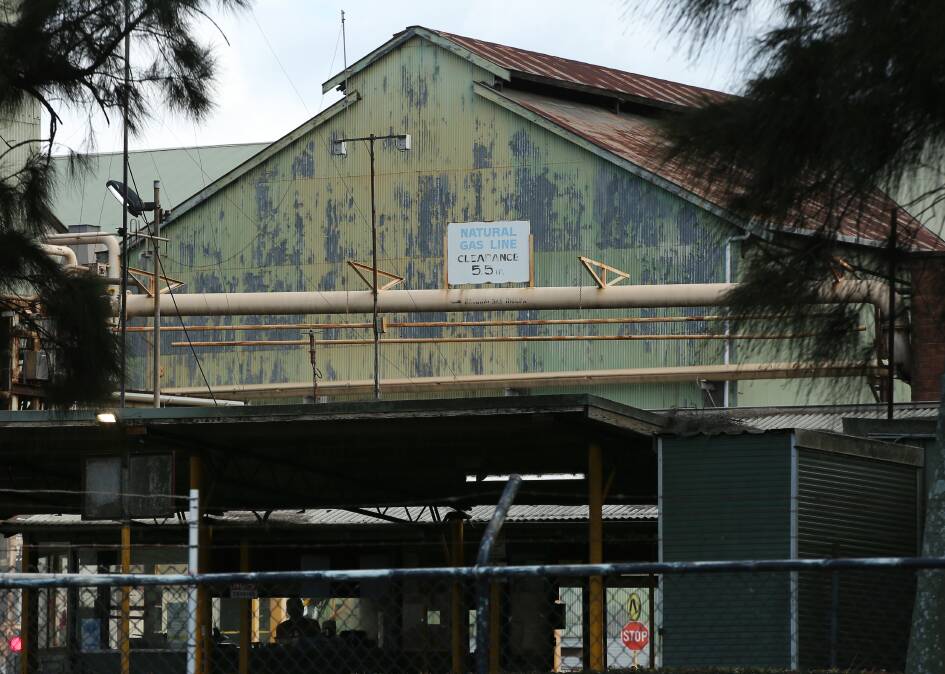
BUSINESS Hunter chief executive Bob Hawes has called on the federal government to step in and help after Molycop announced it would cease steel-making at Waratah and cut jobs.
Mr Hawes said given the government's own ambitions for improving Australia's sovereign manufacturing capabilities, he would assume it would be keen to understand the circumstances that have led to another mass industry loss.
"We're at a moment in time that requires a rapid scaling up of sovereign manufacturing capability, not the reverse," he said.
"These sorts of occurrences are a reminder of the difficult circumstances that many businesses are operating under.
"Energy certainty continues to be a source of intense pressure for business, with high energy users shouldering the risk of further price increases and supply shortfalls that impact their bottom line."
Just five years ago, NSW accounted for nearly 30 per cent of national employment in the steel fabrication sector.
In the aftermath of Molycop's decision, just 290 of its 540 roles will remain in Newcastle.
It's understood there was no single factor behind the decision, with Molycop falling victim to both local and international influences.
About 10 per cent of the steel produced at Waratah is sold to other customers, the rest is used by Molycop itself.
Assistant Minister for Manufacturing NSW Senator Tim Ayres said Molycop's decision just underscores the federal government's determination to get the policy settings right to rebuild Australian's manufacturing capacity.
"This occurs against the backdrop of a series of painful redundancies in steel and manufacturing more broadly," he said.
"This is a government determined to act, and for me it at least redoubles my determination to keep on with this work."
He said the government had invested in the biggest industry policy package in Australian manufacturing history and was fixing the electricity and energy sectors to make sure manufacturers had access to lower prices.
"Every skilled job that goes is one too many, what we must focus on is building the manufacturing capability of the future," he said.
"There is going to be an enormous requirement for skilled workers, tradespeople and engineers at the highest level in the future for clean manufacturing, all the national reconstruction priority areas and the government's ambitions in terms of big projects like future submarine and ship building."
He said it was a tough day for workers and even harder to see a central part of Newcastle's industrial infrastructure be 'mothballed'.
Formerly known as the Commonwealth Steel Company, or 'Comsteel', Molycop celebrated a centenary of steel-making in Newcastle just five years ago.
Mr Hawes said the demise of a business that has been operating for such a long period of time is distressing.
"I'm sure it was not a decision that Molycop has taken lightly," he said.
"The plight of workers must come first, and it will be important for the region to do its best to retain the skills of these workers, given the ambitions we harbour in so many related and integrated industries."
The company has passed through the hands of some of the largest names in national and international manufacturing, from BHP to Kerry Packer's Australian National Industries, to Smorgon Steel, One-Steel and now the Moly-Cop Group.
The site opened in Waratah in 1918 with 140 employees, by 1939 the workforce had grown to 600 - reaching more than 3,200 at the height of war production.
In the last 100 years the company has employed and trained more than 20,000 men and women.
Generations of local families have walked through the gates and for many, it provided security in uncertain times.
During the depression era, the business moved to part-time operation to hold the workforce together until they could be employed again full-time.
Newcastle Industrial Heritage Association president Bob Cook said Molycop, formerly Comsteel, was the result of all of the industries of Newcastle working together.
"Historically this is a big loss, as well as the jobs, but this is another thing Australia is losing, we used to make everything and now we make almost nothing - it's a sad day in that respect," he said.
"Newcastle's 'steel city' identity definitely has changed and this really is another nail in the coffin.
"It's a big loss and it indicates we're no longer the old steel town of the past."
The Waratah plant makes grinding balls for the mining industry to grind down ores, and railway wheels still supplied under the Comsteel brand.
It's the country's only railway wheel manufacturer and has a strong presence in the domestic market, making about 40,000 wheel and axles sets a year in 2018.
The company was born out of hard times, when getting train axles, wheels and tyres from Europe became almost impossible during the war and national rail transport faced a crisis in 1917.
Commonwealth Steel Products was registered on March 12, 1918 and began supplying railway products to the domestic market.
Just 20 years later, the company was researching the manufacture of bullet proof plates and armour plates as part of the war effort for WWII.







